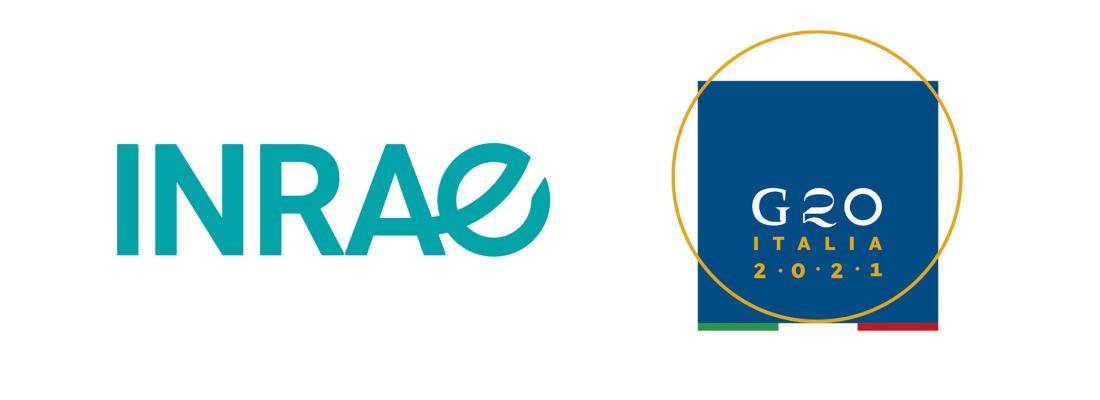Reading time 2 min
10th Meeting of G20 Agricultural Chief Scientists: the French delegation led by INRAE
Published on 28 June 2021

The agenda for the 10th MACS, chaired by the G20 Presidency of Italy, included new genomic techniques and digital traceability, two subjects on which French experts spoke.
Regarding new genomic techniques, Philippe Mauguin recalled France’s position – within the scope of current European legislation – which holds that research undertaken to explore the benefits and risks related to such applications is a legitimate endeavour. These technologies are a research tool employed to gain insights into living organisms and how they function, which research institutes such as INRAE must investigate. Peter Rogowsky, a research director at the Plant Biology and Breeding division, used the example of camelina to illustrate the prospects of French research in this field, in both basic and applied research.
Véronique Bellon-Maurel, director of the #DigitAg Digital Agriculture Convergence Lab, spoke about how digital traceability comes with many benefits (by connecting producers and consumers, improving consumer safety, informing consumers about the carbon footprint of products, etc.) and that it must rely on economic and interoperable technologies that do not require costly infrastructure and which enhance trust. For example, blockchain technologies hold such promise, but they also have their limits. Overcoming these limits will require more research in technological fields and the humanities and social sciences.
Other topics discussed at the MACS-G20 were the 2021 UN Food Systems Summit (UNFSS) and 2021 Conference of the Parties on Climate Change (COP26), both to be held later this year.
First, and in response to a speech by Joachim von Braun, Chair of the Scientific Group for the UNFSS, Philippe Mauguin outlined France’s five key positions on the need to transform our food systems to create healthy, sustainable models.
- Promote food system transition through agroecological practices.
- Implement the One Health approach, where human and animal health are interdependent and connected to the health of the ecosystems in which they co-exist. Philippe Mauguin also mentioned the Preventing Zoonotic Disease Emergence (PREZODE) initiative launched by the French president, Emmanuel Macron, during the One Planet Summit on biodiversity on 11 January 2021. This innovative international initiative seeks to integrate all aspects of prevention, surveillance and early detection of pandemic risks of animal origin. Find out more about it at https://prezode.org.
- Combat all forms of malnutrition (undernutrition, micronutrient deficiencies, overweight, obesity).
- Invest in agricultural research and innovation and develop international research collaborations.
- Enhance global governance on food systems, where the Committee on World Food Security (CFS) and its High Level Panel of Experts on Food Security and Nutrition (HLPE) play a fundamental role.
Finally, with respect to the COP26 and the Koronivia Joint Work on Agriculture (KJWA), Jean-François Soussana, Vice-President of International Policy, discussed France’s support of and INRAE’s participation in this process through other global initiatives such as “4 per 1000 – Soils for food security and climate” and the “Global Research Alliance on agricultural greenhouse gases (GRA)”. He also recognised the work accomplished for the KJWA process, made possible through productive dialogue between researchers and negotiators.
Click here to read the official MACS-G20 2021 press release
